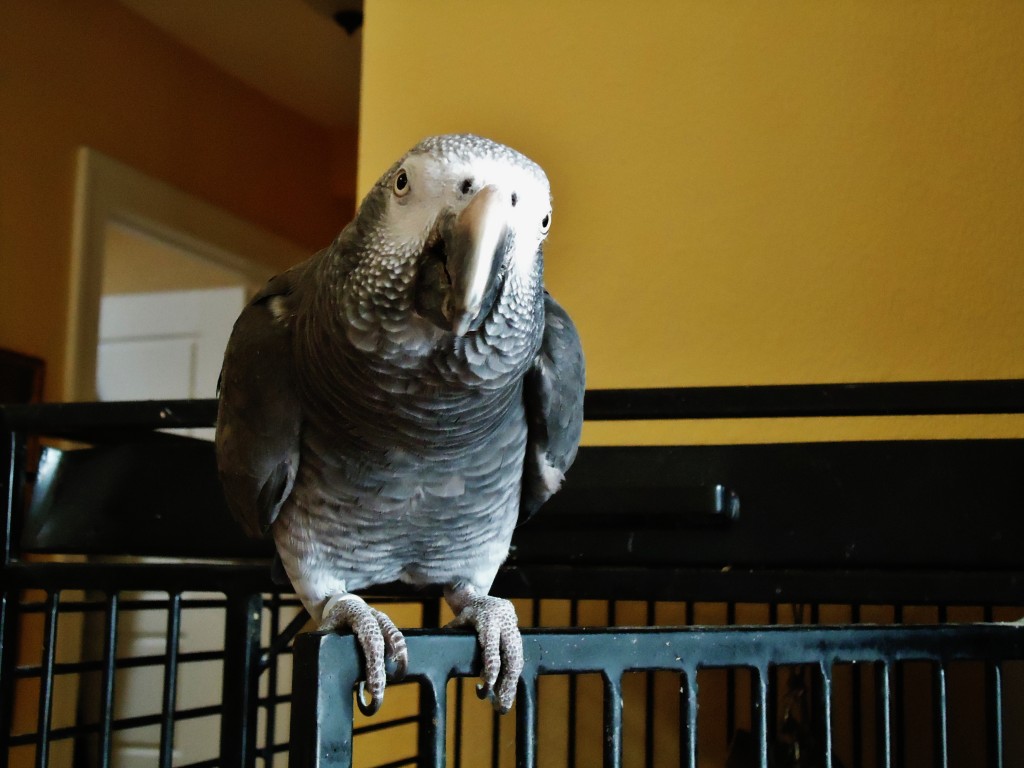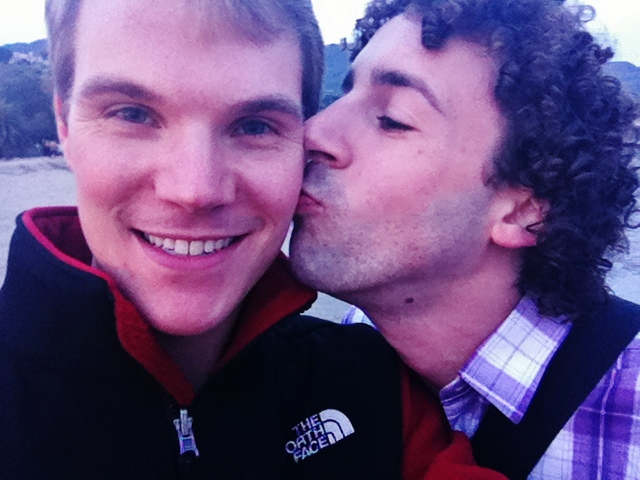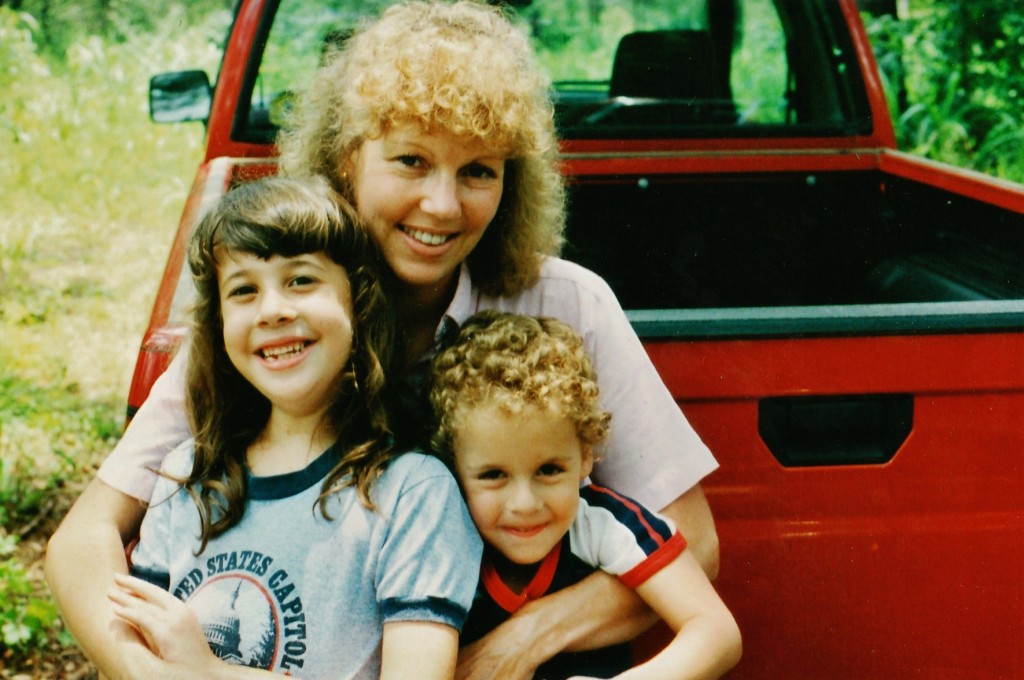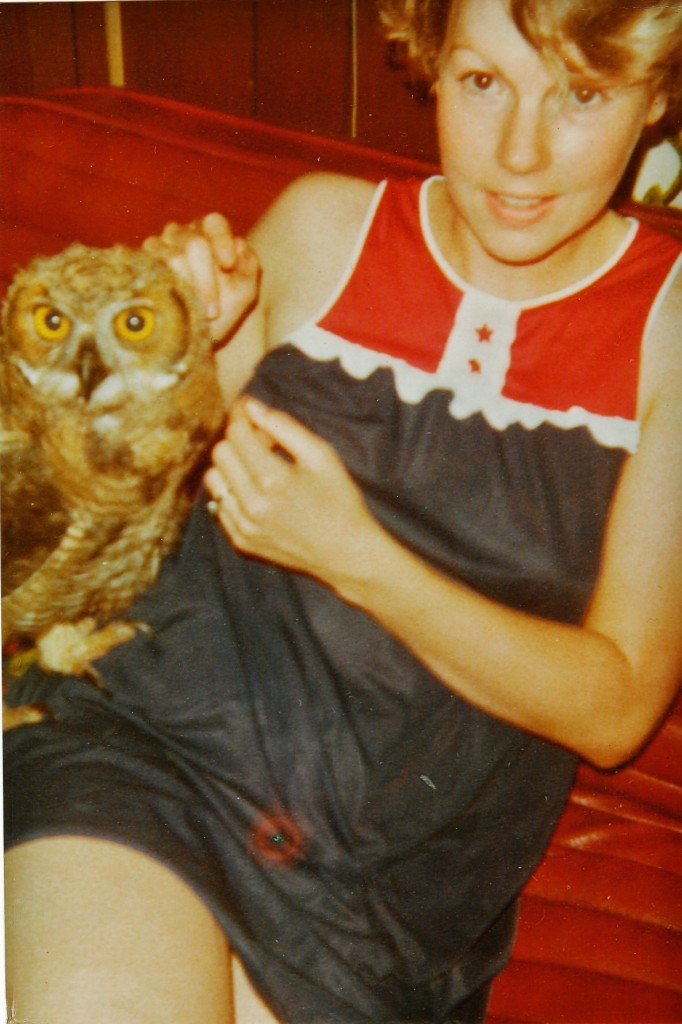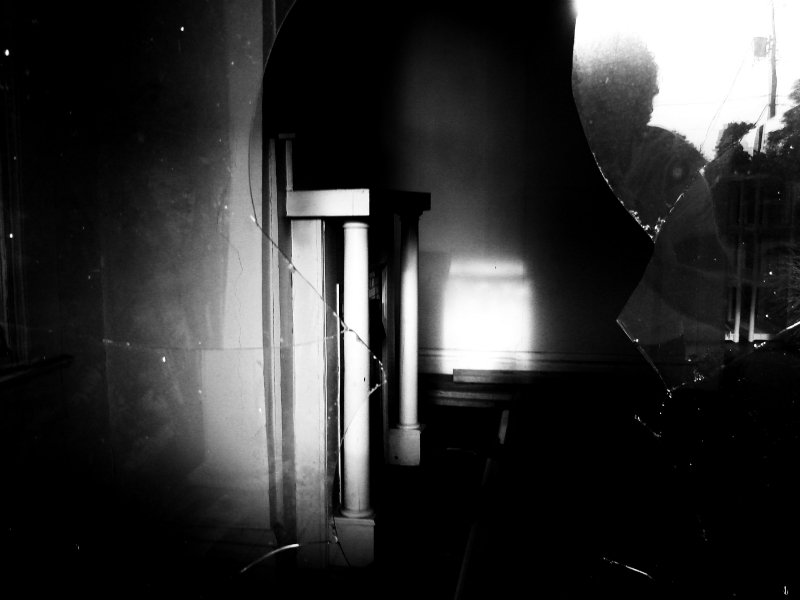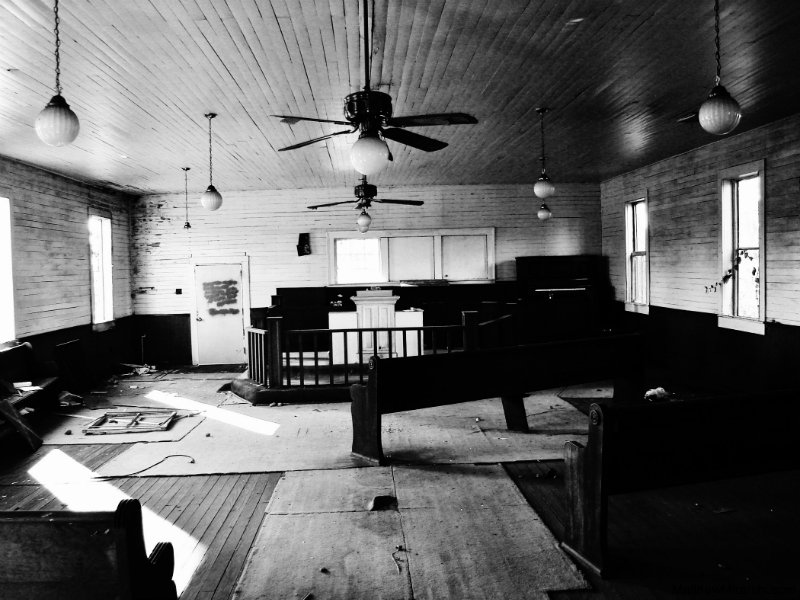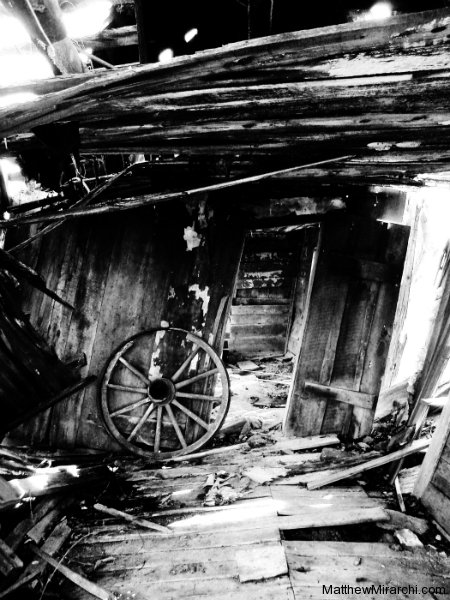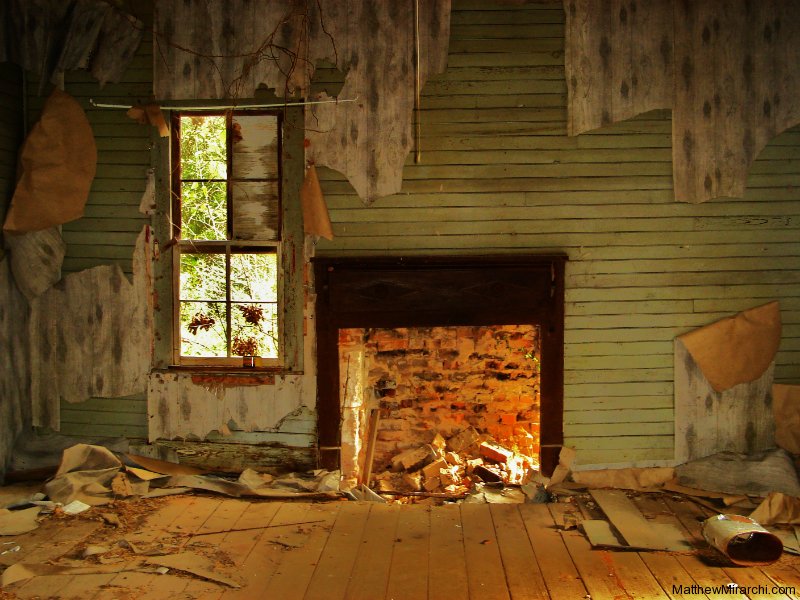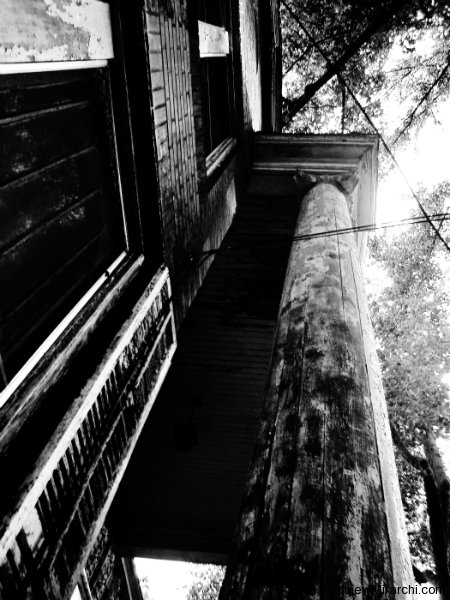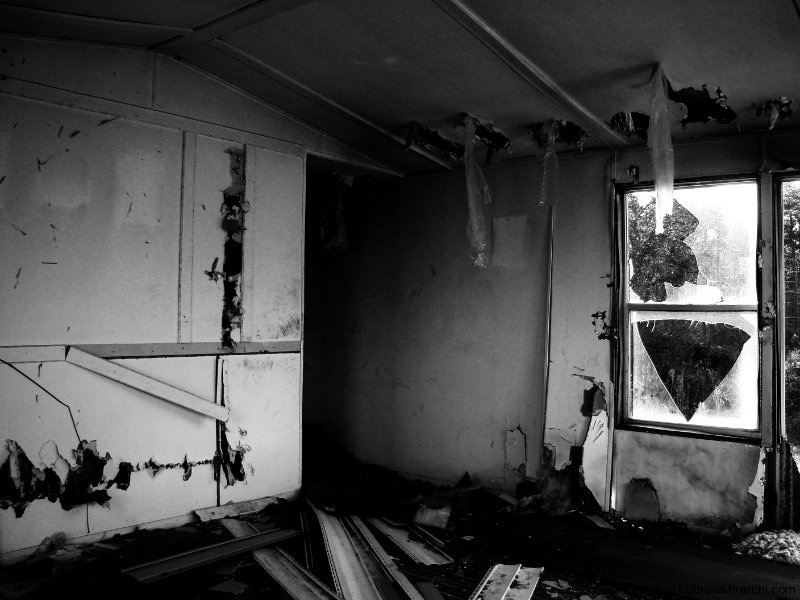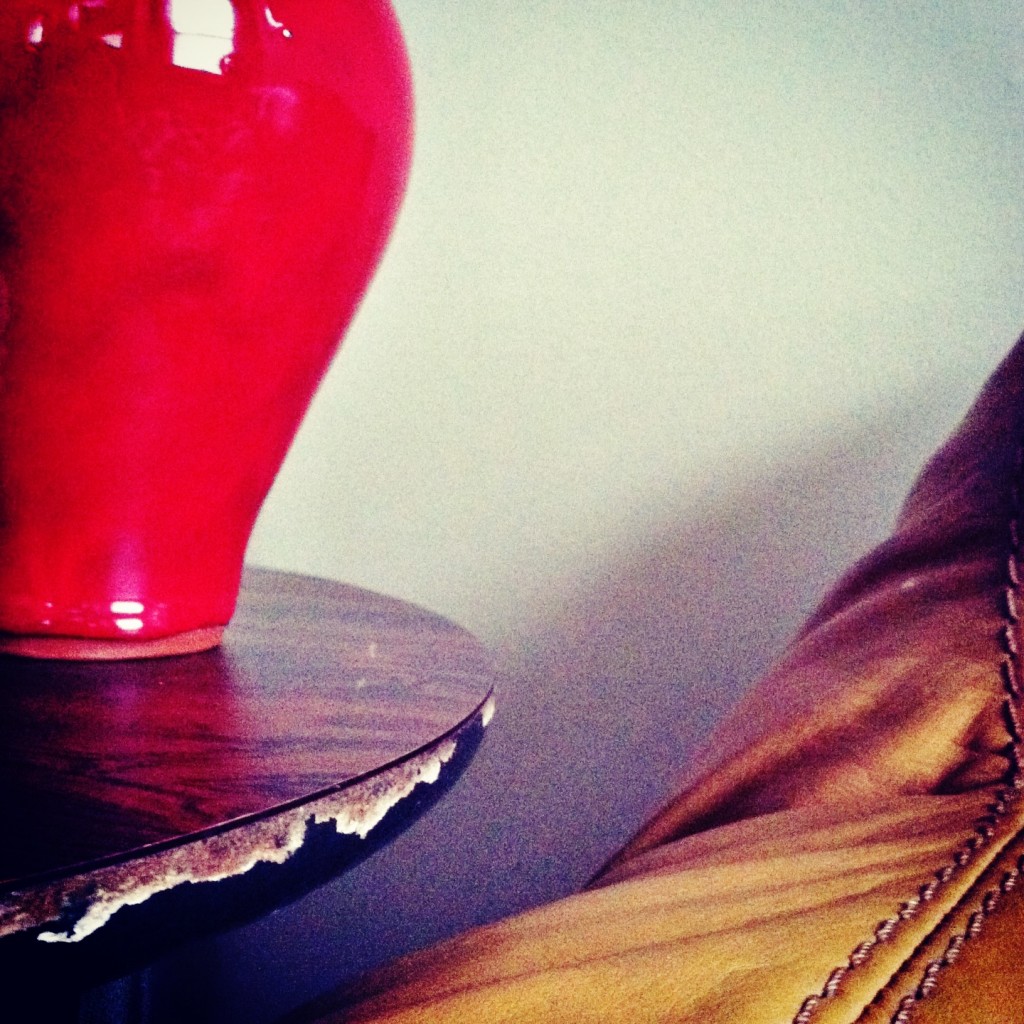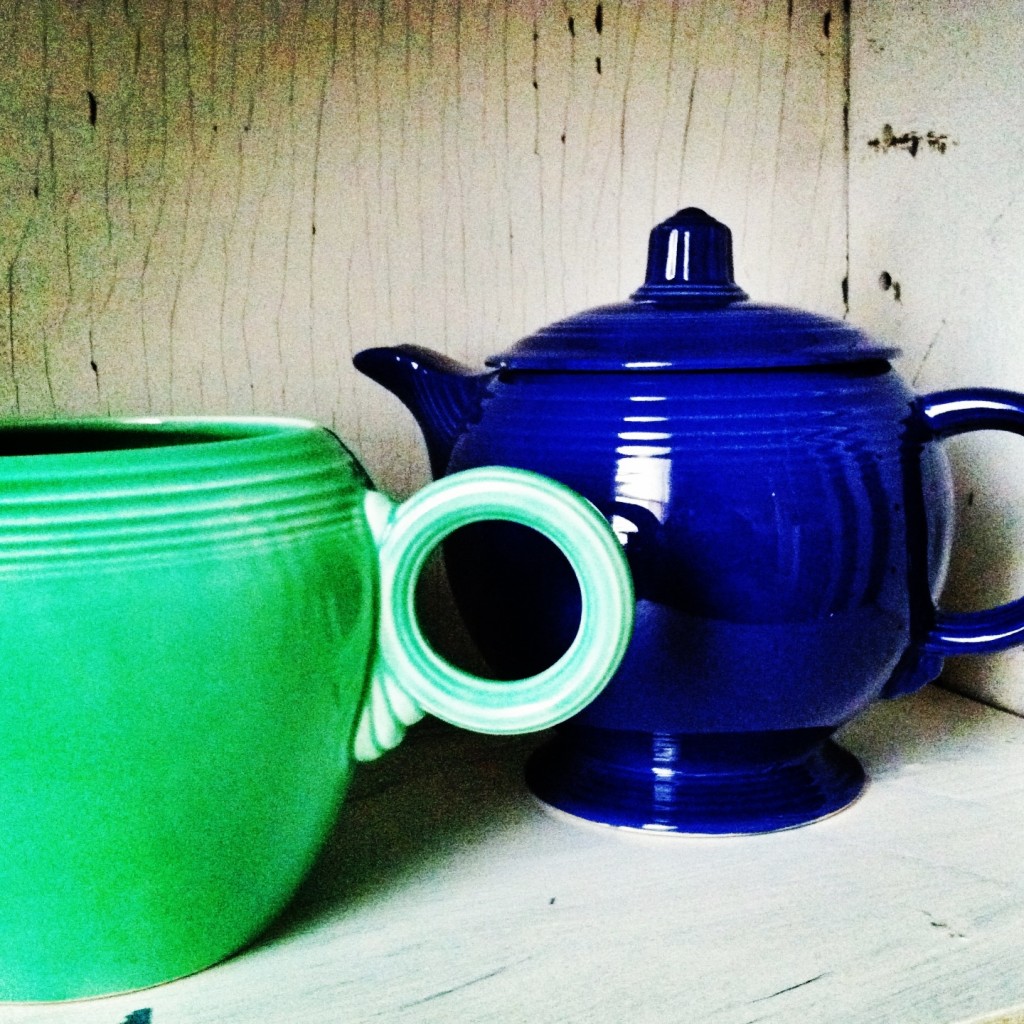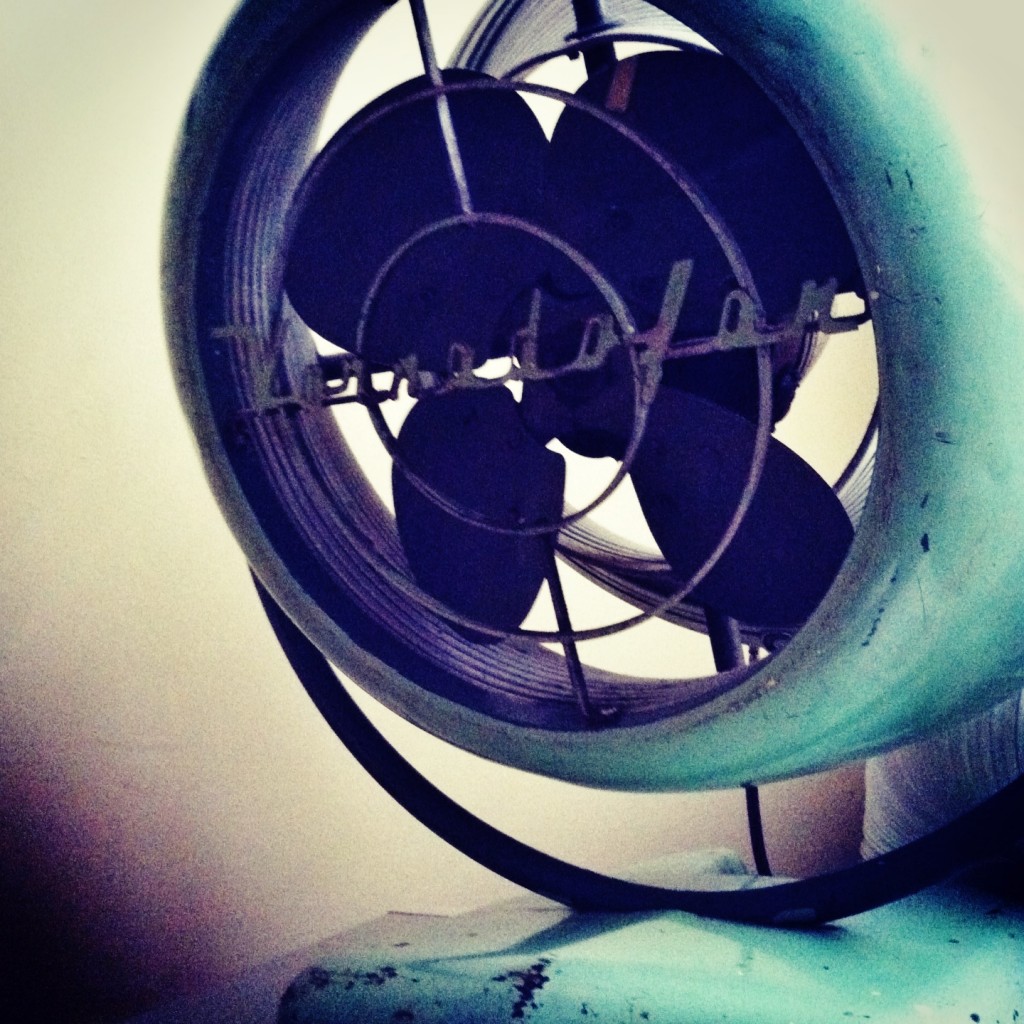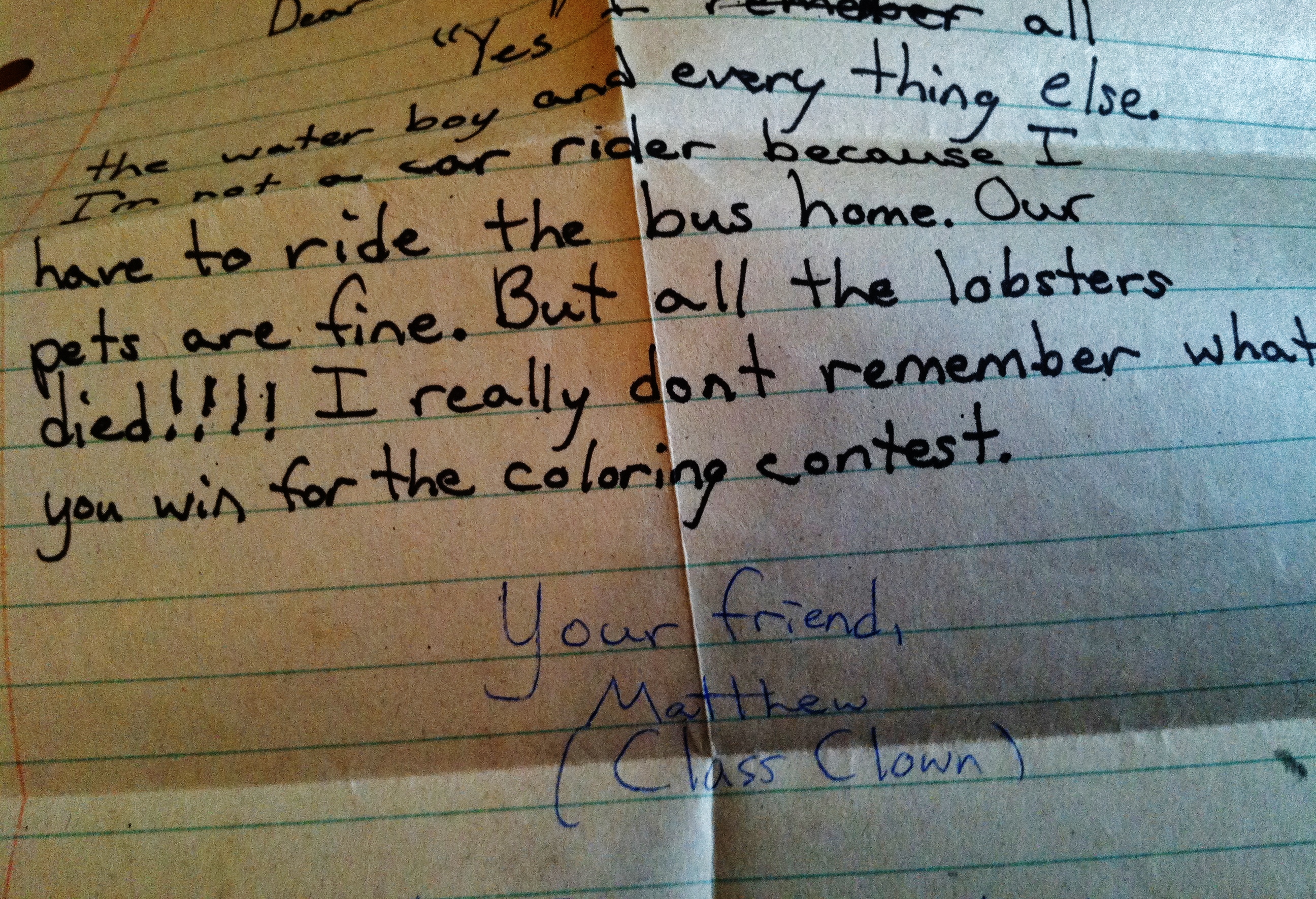On the way to World War Z, Andy and I get stuck behind a serial killer Aerostar, the distracted drivers of which are doing their best to sideline our Saturday afternoon.
Between my obscenities and gay hand gestures, Andy notices something.
“Oh my god. I think there’s a bird in that van.”
“A bird? Driving it? What do you…”
That’s when I see the macaw’s head pop up between the front seats. The parrot pulls itself up the driver’s sleeve, resting on the bulky shoulder with a few bobs of its head. Firmly rested, it keeps bobbing.
“I think it’s regurgitating for them.”
“What?”
*Gay hand gesture*
“I think the macaw is trying to feed them. But at least they’re not accepting it.”
“Like, throwing up? You mean it’s feeding them…”
“Nah. I’m sure they’re close to their parrot, but not that…”
The driver turns and accepts the cloyingly-sweet macaw’s offering.
And I nearly regurgitate a little myself. But as I choke down the stomach acid, I think about our family’s own little feathery lump of joy. And all of the wondrous treats he’s gifted us over his twenty-six years of life.
Twenty.
Six.
***
My gold Mercedes is totaled.
A door here, a tire there–all wrenched from the car body in the most ghastly fashion possible.
By the most vicious beak in Opelika.
I follow the trail from the kitchen to the beast’s lair. Scooby sits king-like atop his massive cage, looking out of the sunroom’s window bank. He looks down at me, his dinosaur eyes narrowing.
Yeah, mothafucka, yeah, I destroyed your goddamned car!
“I hate you!”
Inter-species sibling love at its finest.
***
Long before Scooby systematically destroyed many of my favorite Matchbox cars, his more sinister side manifested through my ad hoc rhinoplasty, which underscored the extent to which his tiny body pulsed with tornadic energy. Combine that with his narcissism, and the Mirarchi family had within its fold a sadistic megalomaniac flying amok.
Trifles didn’t entertain him. Pencils, Kleenex boxes, dog toys, jewelry, seed logs–all obliterated with little fanfare. He liked challenging, more difficult targets. Like that chirping, talking box we’d run to after the phone rang. Or the family Bible. Soon enough, he was victorious and thirsted for more.
Largely out of fear, we looked for scapegoats to satiate his needs. The dog was already terrified of him. We needed something slower, something trusting.
Then, Eureka! the solution fell into our laps: a nursing home wanted Dad to bring Scooby in for a Halloween party.
Not only do touchy-feely strangers make Scooby intensely uncomfortable, but droves of them would surely put him in his place–make him realize he’s no match for real people.
At least that’s how I viewed it.
So as Dad prepped Scooby, I watched mirthfully, thinking of the shell of a parrot he’d return as.
And return he did. Thirty minutes later.
But was that glee in his eyes? A slight, birdy chuckle?
No!
“You won’t believe this!” Dad, clearly disgusted, lays it out.
Apparently, after explaining the ground rules for interacting with Scooby, one elderly woman late to the festivities took a chance. And paid for it.
Removing his eye patch, all Dad can muster is “It all happened so fast.”
Blithely unaware and cooing Pretty bird, pretty bird, she’d extended her frail hand up to Scooby; and Dad saw her two seconds too late. Scooby, unintimidated and craving flesh, latched onto her finger like a bear trap on a rabbit’s head. With every one of her screams and jostles, I’m sure Scooby tightened his hold, even as Dad the Pirate tried to pry him off.
Scooby: 1. Humanity: 0.
***
Despite his less desirable qualities, Scooby has taught me that deadly things can come in all shapes, sizes, and feathered varieties–and that every living creature will demand that you respect it’s authority in some way or another. After all, it was just a blink of the cosmic eye that our avian brethren had scaly flesh and dinosaur brains.
Even still, I can be surprised.
Like the call I got a year ago.
“Laura was attacked by Benny today.”
“What?! Who the hell is Benny?”
“The Vulture.”
“Clearly. But who is he?”
“Benny the Vulture. An actual vulture.”
“Oh.”
“And watch your language.”
A wildlife educator, Laura had plenty of experience tackling impertinent birds and raptors. And it just so happened that Benny took a profound disliking to her early on, leaving her legs poked and chiseled by his beak.
But perhaps Benny sensed that the Mirarchi blood wasn’t clean of avian atrocities, and that it was up to him to right the wrongs of the past.
Like the Woodpecker Debacle of ’08.
October 19, 2008. The proverbial battle between Mirarchi and Bird reached its most intense extreme to date. The bird may have dealt the first, second, and third blows, but the fourth and final was dealt by Dad.
A few days ago, after returning from errands, Dad heard Woody boring yet another gaping hole into the side of one of the porch columns, right next to a recently patched hole he’d stuffed a tree branch into, to both dissuade the bird and piss off the neighborhood association.
“I think we’ll decorate it for Christmas!”
But Woody had returned. And sat hanging from the column, looking into the eyes of his nemesis.
“I had that gun loaded for three weeks and knew the minute we moved the scaffolding to the side of the house that he’d come back!”
By the time Dad ran into the house, grabbed the gun, and returned to take out the target, Woody was gone. But each day, right as Dad would settle down, Woody would return.
“I’d no sooner sat down on the living room ottoman when that little bastard came back! But this time, I was ready.”
Shoeless, Dad tiptoed out to the porch.
“When that little prick stuck his head right around the column, I blew him right off! He dropped like a rock. I didn’t care if anyone saw me blast’em!”
Once the echoes stopped reverberating off the neighboring houses, Dad admired his handiwork.
“I musta had that same look in my eye as the time I cut half the Christmas tree down with the chainsaw in the living room! But anyway, I bagged that bird in a Ziploc and taped the bag to the back door for your mom.”
***
Despite the tiffs between the avian and human members of our family–putting our scars and the now infamous Dad-Scooby decade-long feud aside–there’s still plenty of love threading us all together. Even if it’s of The Addams Family ilk–the macabre, slightly kidding way Dad jests about taking Scooby quail hunting, us eating peanut M&M’s in front of a deprived Scooby.
Still, there’s love.
There must be. Otherwise, my OCD-crazed ninth-grader self wouldn’t have worried so much that any one “S” overhanging my notebook paper’s bounding red lines would translate to Scooby’s head being lopped off guillotine-style.
I was looking out for him. In my own convoluted, magical thinking-like way.
After all, there’s a little sweetness nestled somewhere in that little bile-filled body of his that deserves to be celebrated. Because in his own birdbrain way, he cares about us, too.
Like the time Laura and I were staying home alone, and had stupidly left the front door open and the screened door closed. Since we weren’t supposed to answer the door, much less leave it wide open, we hid when a UPS carrier approached and called through the door. And out of nowhere, Scooby let loose a lascivious Yoo hooooo! from the back of the house that sent the young carrier bounding down the steps and to his truck. Victory.
That alone deserves a little respect.
***
The day after Woody’s demise, Dad set to patching the hole. But then saw something else: a series of smaller ones around Woody’s last stand. Pellet shot.
“Goddammit! Well, that bastard ain’t comin’ back!”
I imagine the front door being left slightly ajar. And, on hearing Dad shout, a quiet, contented chuckle filtering out from Scooby’s nook.
But he’s already here.

